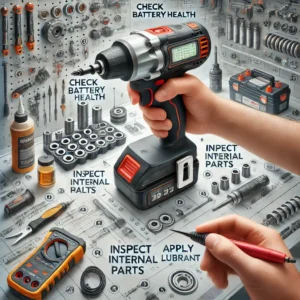The use of Li-ion batteries has grown significantly in recent years. Many of our tools are also equipped with li-ion batteries, such as electric drills, electric wrenches, electric Reciprocating saw electric air blower, etc.
However, like all technologies, lithium-ion batteries have their advantages and disadvantages.
1. High energy comparison. The high storage energy density has reached 460-600Wh/kg, about 6-7 times that of lead-acid batteries.
2, long service life, the service life of up to six years or more; lithium iron phosphate is positive battery 1C (100% DOD) charge and discharge, some records can be used 10000 times.
3, high rated voltage (single working voltage of 3.7V or 3.2V), equal to the series voltage of three NiCd or NiMH rechargeable batteries, convenient to form a battery power pack; lithium batteries can be adjusted by the new lithium battery. Presser technology, voltage adjusted to 3.0V, suitable for small appliances.
4, with high power carrying capacity, of which lithium iron phosphate lithium-ion batteries for electric vehicles can achieve 15-30C charge and discharge capacity, easy to start high-intensity acceleration.
5, shallow self-discharge rate, which is one of the most outstanding advantages of the battery, generally can be below 1% / month, less than 1/20 of NiMH batteries.
6, lightweight, the same volume weight is about 1/6-1/5 of lead-acid products.
7, low adaptability to high temperature, can be used in -20℃-60℃ environment, after processing, can be used in -45℃ environment.
8, green environmental protection, whether production, use or end-of-life, does not contain any toxic and harmful heavy metal elements and lead, mercury, cadmium and other substances.
Nine 、Production basically does not consume water, which is very beneficial to China where water is scarce. Specific energy is the energy per unit weight or unit volume. Specific energy is expressed in Wh/kg or Wh/L. Wh is the unit of energy, W is the watt, the hour; kg is the kilogram (unit of weight), and L is the liter (unit of volume).
Disadvantages
1. primary Lithium batteries have poor safety, and there is a danger of explosion.
2. The lithium-ion battery of lithium cobalt oxide can not discharge at a large current, and the price is high, and the safety is poor.
3, lithium-ion batteries need to protect the line to prevent the battery from being overcharged and discharged.
4. High production requirements and high cost.
5, the use of conditions are limited, high and low-temperature use is dangerous.



